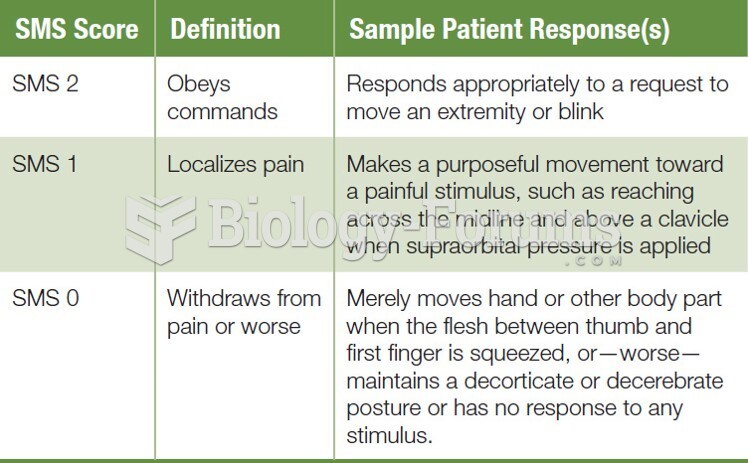This topic contains a solution. Click here to go to the answer
|
|
|
Did you know?
Despite claims by manufacturers, the supplement known as Ginkgo biloba was shown in a study of more than 3,000 participants to be ineffective in reducing development of dementia and Alzheimer’s disease in older people.
Did you know?
Essential fatty acids have been shown to be effective against ulcers, asthma, dental cavities, and skin disorders such as acne.
Did you know?
Blood is approximately twice as thick as water because of the cells and other components found in it.
Did you know?
There are more nerve cells in one human brain than there are stars in the Milky Way.
Did you know?
Eat fiber! A diet high in fiber can help lower cholesterol levels by as much as 10%.







